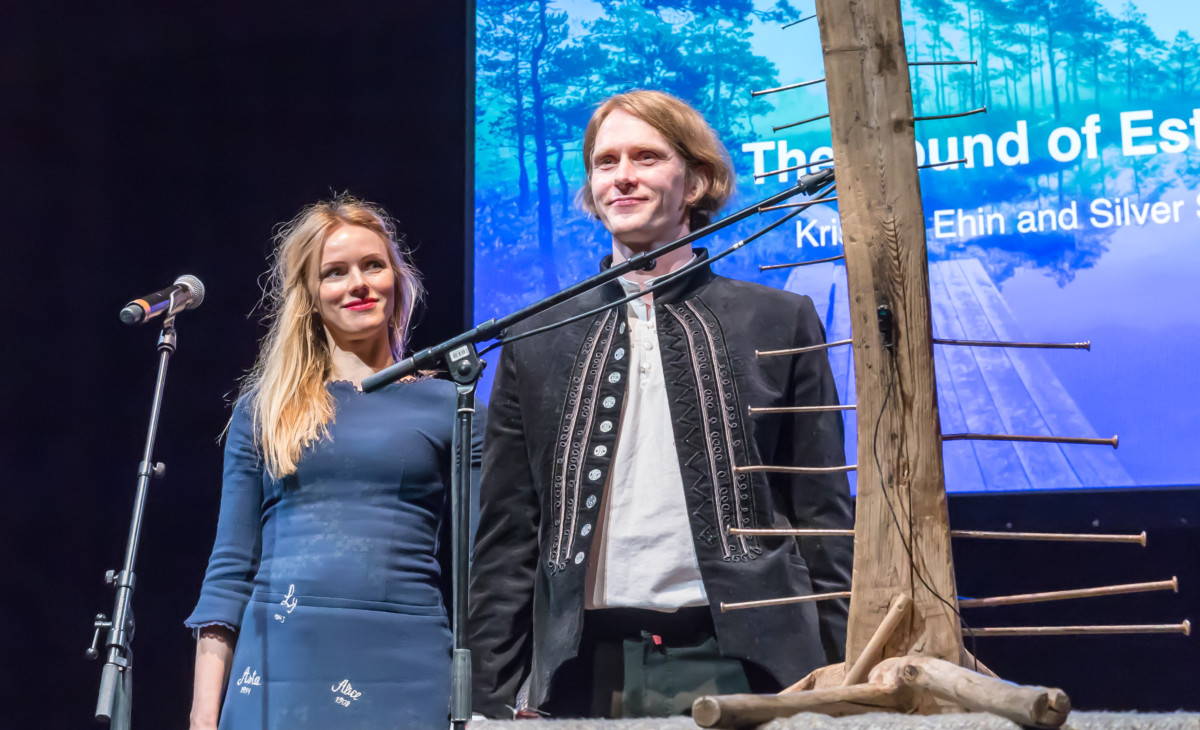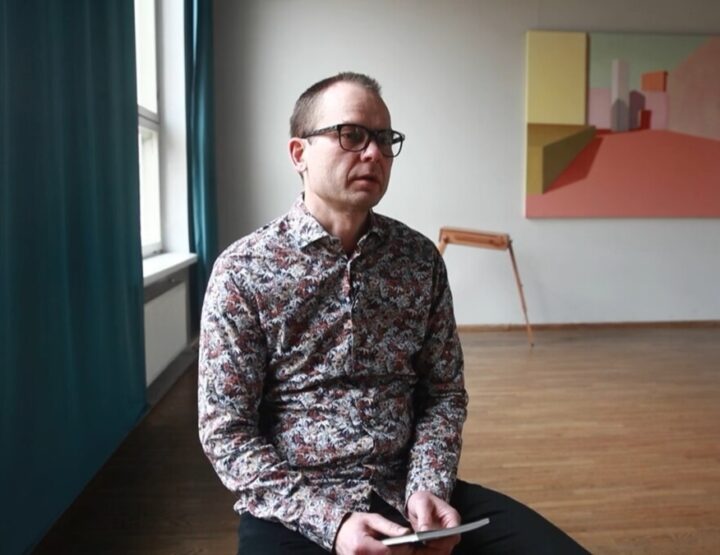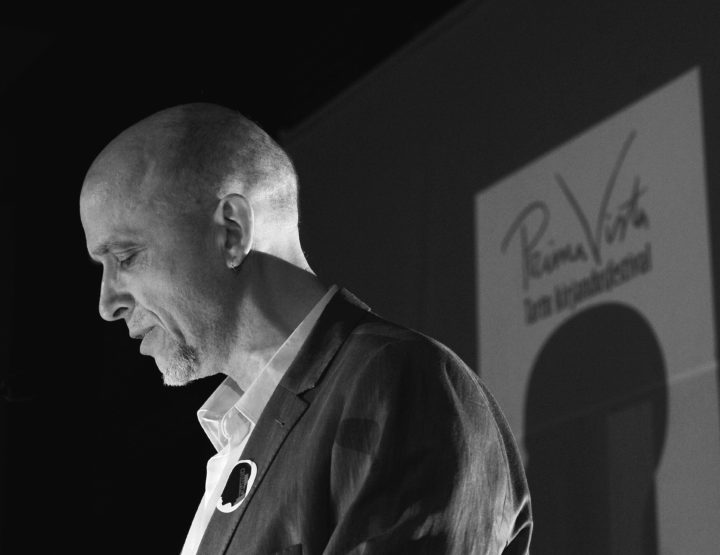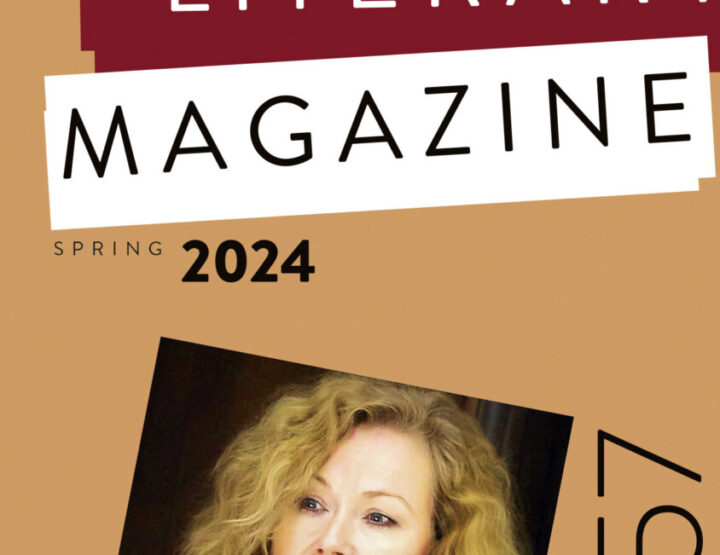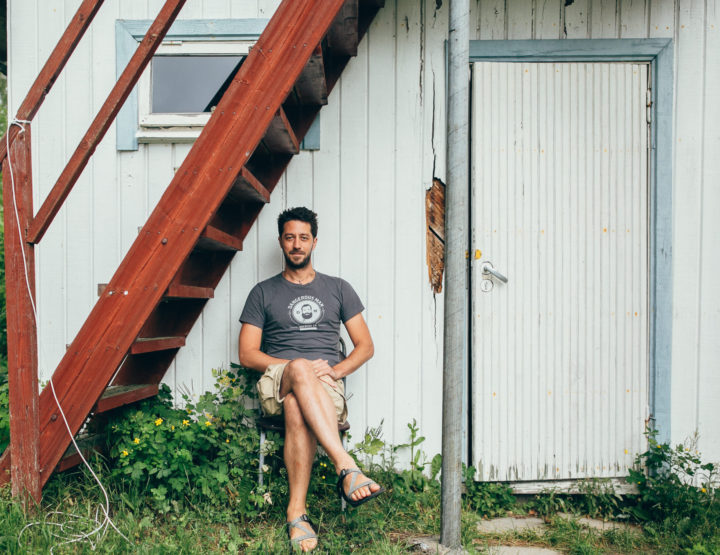If ever there was a fitting location for a first-of-its-kind showcase of Estonian literature and culture in the Anglophone world, it was the Victorian-era former theater and cinema in London’s Notting Hill: a space plucked from time, and in tune with vibrations on another level of consciousness. On the 13th and 14th of April 2018, this atemporal haven – Print Room at the Coronet – hosted EstLitFest; not simply a celebration of Estonian literature, music, thought, and food, but a fascinating exploration and dialogue regarding identity and the country in relation to the world today.
Coming right off the heels of the London Book Fair, during which Estonia and several of its authors were spotlighted as a Market Focus Country (with one organizer calling the Baltic states’ efforts “the most serious” she had ever seen), EstLitFest was a triumphant climax to a whirlwind week that already seemed at maximum volume: with it, the Estonian Literature Center truly turned the knob up to eleven.
Opening the festival was the artistic power couple of Silver Sepp and Kristiina Ehin. Releasing sounds as ancient as the depths of Estonia’s murky bog pits, and words that awakened long-dormant elements of the soul; they gave listeners the unearthly sense that ancestors had been summoned and were present throughout the space. As Ehin read her poetry in Estonian and English, including a moving lament about the recent spike in clear-cutting in Estonia, Sepp masterfully drew rhythms and melodies out of unexpected instruments, looping sounds and singing over the powerful foundation. A section of tree trunk with projecting nails of various lengths, played with a bow; the spokes of a bicycle wheel; a length of rubber tubing – genuine Finno-Ugric resourcefulness. Before one song, the musician told the audience he had intended to bring a set of hand-crafted, time- and weather-worn wooden skis along with him to London, but decided against it at the last minute. Upon arriving, he and Ehin regretted the choice and mentioned it to a local friend, who set off on a quest throughout the metropolis to find a suitable substitute: with a sly smile and a glint in his eyes, Sepp then proceeded to coax music from them.
Next on the program, following a short break for simple Estonian delicacies and a Baltic porter – crafted specially for the London Book Fair and the festival by the Estonian brewery Õllenaut – came the launch of Ilmar Taska’s novel Pobeda 1946: A Car Called Victory, translated by Christopher Moseley. An excerpt was read by professional British actors Anna Winslet (yes, sister to Kate) and Edmund Harcourt. Taska – who was born in Siberian exile – discussed the work and his own first-hand memories of Estonia’s painful history with BBC journalist Rosie Goldsmith, while Estonian jazz musicians Villu Veski and Tiit Kalluste provided foggy Nordic-inspired interludes. After enjoying warm Estonian snacks, the multinational crowd of festivalgoers returned to the main stage to bathe in enchanting music performed by the Villu Veski and Robert Mitchell Jazz Quartet (EST–UK): a delight for the audience and the musicians alike, bringing to mind the alternating heat and chill of a seaside sauna session.
Early the next morning, the festival reopened with a family event for Estonian and English children led by the Estonian poet, storyteller, and singer Veronika Kivisilla. For the adults, two translators of Estonian prose and poetry into English – Miriam McIlfatrick-Ksenofontov and yours truly – discussed the challenges and joys of revoicing Estonian authors’ words and intrinsically-embedded meanings in their native English. From there, the festival roared on with an exhilarating array of topics and speakers. Highlights included Marika Mägi, James Graham-Campbell, and Mart Kuldkepp delving into the history of Estonian Vikings and the uniting element of the Baltic Sea; Estonian author and opinion columnist Mihkel Mutt speculating as to the future of the nation state in Europe from Estonia’s perspective; Russian-Estonian author Andrei Ivanov in conversation with novelist and BBC journalist Zinovy Zinik about the complex issues of language, identity, and nationality; and transcendent poetry by the celebrated author Doris Kareva, read and discussed with her translator Miriam McIlfatrick-Ksenofontov. The prize-winning British novelist and poet Philip Gross also discussed the motives and song behind Kareva’s works with the author, all suspended on updrafts of music by Veski and Kalluste.
Closing the spectacular official festival program was a rousing performance by the Estonian folk ensemble Rüüt. Yet, in the true spirit of an Estonian celebration, the evening continued into the early hours of the morning with traditional cuisine prepared by chef Enn Tobreluts and spontaneous runic singing that united performers and guests alike in one of the most ancient of Estonian customs.
EstLitFest seemed to open a fairy doorway into what lies behind and within the very essence of Estonian literature and culture. The walls of the historical theater were cupped around an open-air snow globe on foreign soil, a phenomenon that enabled both the Estonians and international guests to explore and engage in wide-ranging topics from an entirely different perspective. To truly see and begin to fathom oneself and the beauty of traditions, a step must be taken in another direction – sometimes across an entire sea.
Adam Cullen (b. 1986) is a poet and translator of Estonian prose, poetry, and drama into English. His most recent literary translations include Kai Aareleid’s Burning Cities, Mehis Heinsaar’s The Butterfly Man and Other Stories, Mihkel Mutt’s The Inner Immigrant, and Rein Raud’s The Reconstruction.

